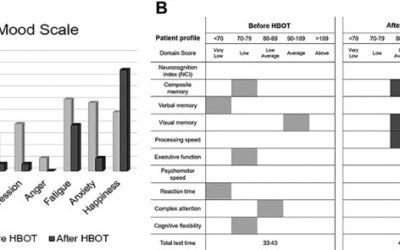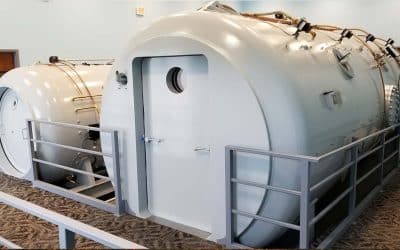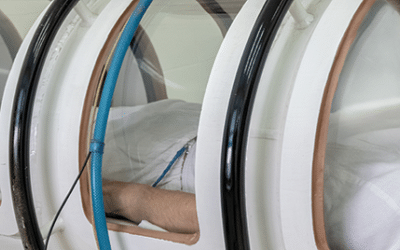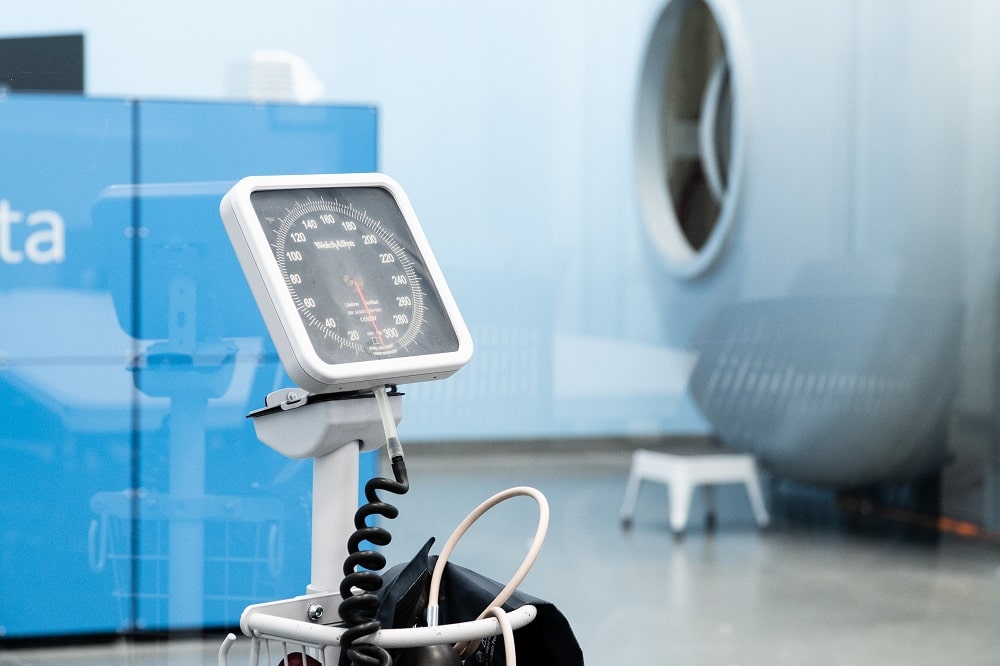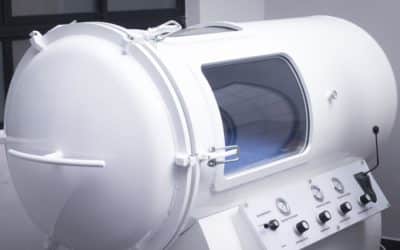HBOT Research
Hyperbaric Oxygen Therapy (HBOT) is increasingly appearing in new research as a treatment for a variety of conditions involving inflammation. Use the search or select an article below to to keep up to date on the most recent HBOT Research.
Recent Hyperbaric Oxygen Therapy (HBOT) Research
Retrospective Case Series of Traumatic Brain Injury and Post-Traumatic Stress Disorder Treated with Hyperbaric Oxygen Therapy
Returning veterans are frequently diagnosed with traumatic brain injury (TBI) and post-traumatic stress disorder (PTSD). Considering a recent case-controlled study of hyperbaric oxygen therapy (HBOT) reporting a reduction in suicidal ideation, we investigated retrospectively three veterans with chronic TBI/PTSD symptoms who were treated with multiple rounds of HBOT with neurophysiological testing performed before and after treatment. Improvements were detected on parameters within neurocognitive domains, including reductions in suicide-related symptoms. These findings independently confirm that HBOT may be effective in treating specific symptoms of TBI/PTSD that are not currently addressed with existing therapeutic approaches.
The Basics of Osteoarthritis
Arthritis is a general term that means inflammation of the joints. Osteoarthritis, commonly known as wear and tear arthritis, is the most common type of arthritis. It is associated with a breakdown of cartilage in joints and can occur in almost any...
Stem cell-based therapy for inflammatory bowel disease
Abstract Inflammatory bowel disease (IBD) is an idiopathic, multi-etiological disease characterized by inflammation and mucosal destruction of the gastrointestinal tract. Despite the remarkable advance in immunomodulating therapies, there still...
Hyperbaric oxygen therapy in Plastic Surgery practice: case series and literature overview
Abstract Hyperbaric oxygen therapy (HBOT) is the use of 100% oxygen at pressures more than atmospheric. Several approved applications and indications exist for HBOT in the literature. Non-healing wounds, such as diabetic and vascular insufficiency...
Hyperbaric oxygen therapy reduces apoptosis and dendritic/synaptic degeneration via the BDNF/TrkB signaling pathways in SCI rats
Abstract Spinal cord injury (SCI) is a serious neurological disease without efficacious drugs. Anti-apoptosis and suppressing dendritic/synaptic degeneration in the anterior horn are essential targets after SCI. Previous studies found that...
Treatment of Traumatic Brain Injury With Hyperbaric Oxygen Therapy
Hyperbaric oxygen therapy (HBOT) is defined as the use of oxygen at higher than atmospheric pressure for the treatment of underlying disease processes and the diseases they produce. Modern HBOT in which 100% O2 is breathed in a pressurized chamber dates back to the 1930s, when it was first used for treatment of decompression illness in divers. There are currently 13 FDA-approved uses for HBOT, including decompression illness, gas gangrene, air embolism, osteomyelitis, radiation necrosis, and the most recent addition—diabetic ulcers. HBOT can dramatically and permanently improve symptoms of chronic TBI months or even many years after the original head injury. This assertion is generally met with skepticism within the medical establishment because we have been taught for generations that any post-concussion symptoms persisting more than 6 months or so after a head injury are due to permanent brain damage that cannot be repaired.
Hyperbaric oxygen produces a nitric oxide synthase-regulated anti-allodynic effect in rats with paclitaxel-induced neuropathic pain
Abstract Research has demonstrated that hyperbaric oxygen (HBO2) treatment produced relief of both acute and chronic pain in patients and animal models. However, the mechanism of HBO2 antinociceptive effect is still elusive. Based on our earlier...
Meta-Analysis on the Efficacy and Safety of Hyperbaric Oxygen as Adjunctive Therapy for Vascular Dementia
Abstract Background: Vascular dementia (VD) is a common type of disease in the elderly. Numerous clinical trials have suggested that hyperbaric oxygen is an effective and safe complementary therapy for aging-related disorders. However, there is no...
Vitamin B12 Enhances Nerve Repair and Improves Functional Recovery After Traumatic Brain Injury by Inhibiting ER Stress-Induced Neuron Injury
Abstract: Traumatic brain injury (TBI) is one of the most common causes of neurological damage in young human populations. Vitamin B12 has been reported to promote axon growth of neuronal cells after peripheral nerve injury, which is currently used...

